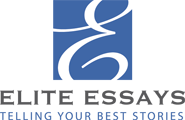The MBA Resume
col-center-n
Good essays start with a good resume. That might sound strange. However, as a structured list of your best academic, personal and professional accomplishments, your resume should be the primary source for your MBA essay topics. Unfortunately, most MBA applicants do not take full advantage of their resumes.
To do so, you need to go beyond merely describing your job duties, which people in similar positions will share. Instead, you need to distinguish your accomplishments with details that only you can claim.
There is a big difference, for example, between this:
"Responsible for helping client improve international sales in food industry."
and this:
"Developed global manufacturing strategy for leading food company, managing two international sub-project teams; playing central role in developing client as key account."
The details in the second example highlight the context and importance of the accomplishment. It has become a complete story in itself, only waiting to be developed as an essay. This example also shows one way of measuring intangible results. (i.e., while the strategy may not have borne fruit yet, the client company is pleased enough to consider an ongoing relationship.) Not every accomplishment can be developed to this level and some can be refined even more. The point is to go beyond mere job description by including details that will capture the reader's interest and serve to introduce the great stories you are going to tell in your essays and interviews.
During the resume development process, you can also begin identifying your "core skills" – the unique qualities that you rely on consistently for success in all areas of your life. This self-awareness is invaluable throughout the application process.
Consider the following line:
"One of youngest Senior Consultants, recognized as leading project manager especially for global-scope or troubled projects; excel in settling conflicting interests."
By including this kind of personal insight, an adcom understands not only the nature and import of your accomplishments, but also "how" and "why" you were successful.
Now, if you face an essay topic (or even an interview question) such as, "Describe your most significant professional accomplishment. Elaborate on the leadership skills you displayed, the actions you took and the impact you had on your organization," (Ross, 2008-09 Application) you have a fantastic answer:
"My leadership, anchored by my ability to settle conflicting interests, was key to our success."
These examples demonstrate the potential for integration and consistency among the resume, essays and interview. This synergy creates a powerful application "portfolio" that will give an adcom the most complete picture of you as a unique individual. And it all starts with the resume.
Note: the most important thing to notice about the samples above is the level of detail. The nature of the accomplishments themselves is less important since your background will likely be different.

